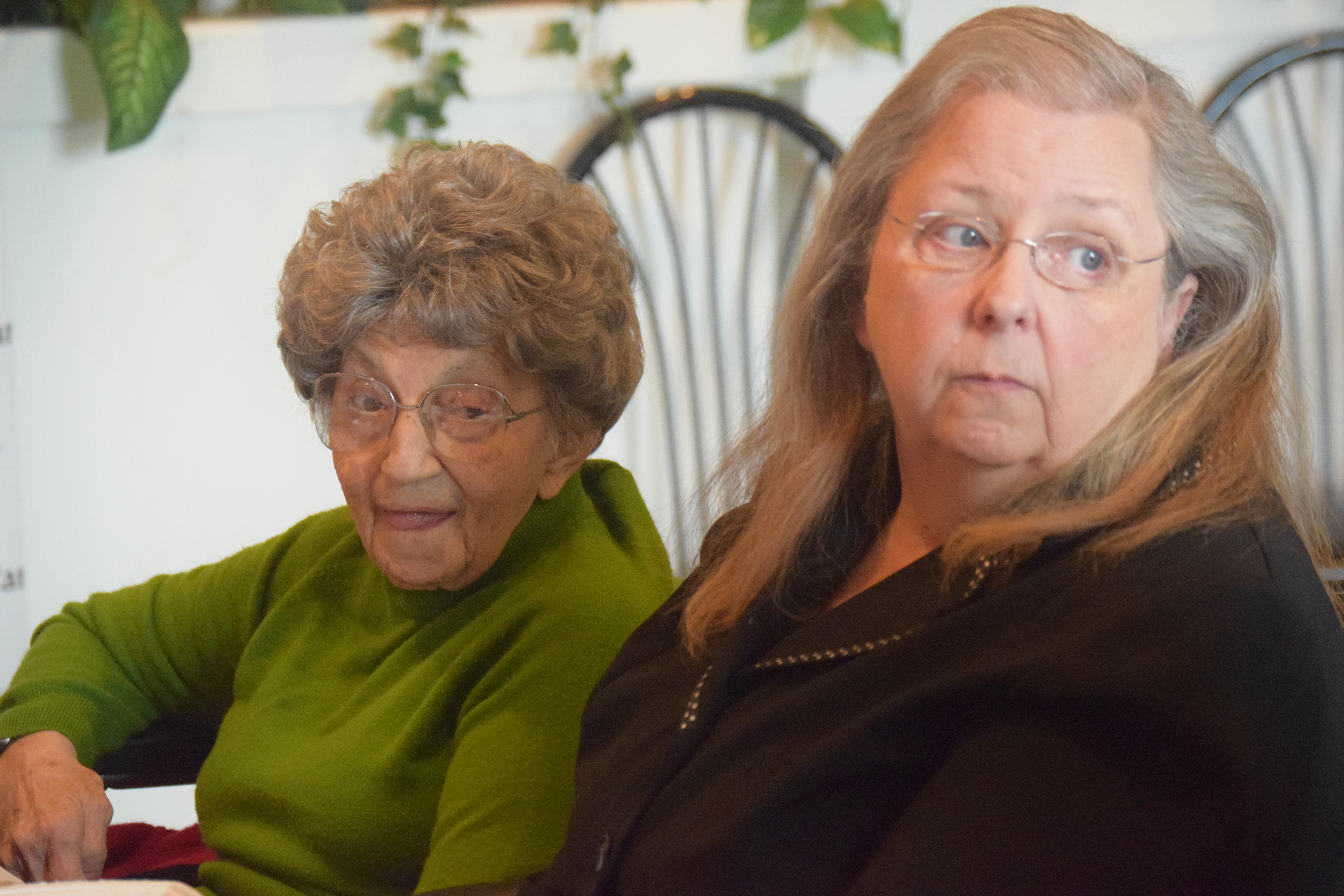AARP Eye Center
RALEIGH— With 1.8 million North Carolinians providing care to family members at some point of time each year, many are seeking local, state and federal resources to help. AARP released an updated 131606 Care NC Guide_16ppthat will assist those needing information and resources to help them take care of family members and loved ones.
Family caregivers are those who care for relatives or friends and they can help in many ways -- whether it’s providing direct financial support, managing a person’s finances, doing household chores, assisting with daily living activities like bathing, dressing, toileting and feeding, providing transportation, administering medicine and much more.
131606 Care NC Guide_16pp has been extremely popular across the state. In 2015, thousands of copies were distributed by AARP volunteers and aging advocates, and many more were downloaded from the AARP website. The newly updated edition has the most recent program information and includes a new section especially for Veterans who have access to added programs and benefits.
The 131606 Care NC Guide_16ppshares information and contacts for state and local government resources including support organizations, geriatric evaluation and assessment centers, caregiver support services, the Seniors’ Health Insurance Information Program (SHIIP), low-income energy assistance, prescription drug assistance and more. It also provides links to important programs with benefits for caregivers such as Medicare and Medicaid, the Affordable Care Act as well as information about federal and state tax benefit resources.
The state’s 16 Area Agencies on Aging and local aging agencies also administer a number of supportive services programs including home-delivered meals, adult day-care centers, transportation and more. The Guide lists the family caregiver resource specialists in each of the area agencies.
AARP North Carolina President Bob Palombo of Southern Shores understands the challenges of caregiving. Palombo helped care for his late mother who passed away in 2015. “Caring for a family members and friends is a labor of love. Along with rewards are physical, emotional and financial demands that can often be overwhelming and stressful,” he said.
According the North Carolina Department of Health and Human Services, nearly one-quarter of the state’s adults are providing regular care or assistance to an older adult with a long-term illness of disability. Half report that the care recipient has memory loss, confusion, or shows signs of Alzheimer’s disease or dementia.
AARP is part of a North Carolina Institute of Medicine (NCIOM) Task Force that will present the first-ever state plan to care for those with Alzheimer’s and other dementia. The report expected to be released this spring. The goal of the NCIOM Task Force is to develop a North Carolina Alzheimer’s Disease Action Plan to provide policymakers, funders, and stakeholder organizations with a common vision and action steps to address Alzheimer’s disease and its effect on our state.
In another measure to support caregivers and provide better patient care, AARP is urging the General Assembly to join the 41 other states that recognize Uniform Adult Guardianship. AARP North Carolina Director Doug Dickerson explains, “North Carolina is one of a handful of states without a Uniform Adult Guardianship and Protective Proceedings and Jurisdiction Act (UAGPPJA), which means that it does not recognize guardianship orders from states where the law has been enacted and vice versa. This can bog down the courts and can be expensive for family members trying to navigate the laws of other states on complex adult guardianship matters.
Adopting the Act is a top state legislative priority of AARP’s and will:
- Create a clear process for determining which state has jurisdiction to appoint a guardian or conservator if there is a conflict. It would designate that the individual’s “home state” has primary jurisdiction, followed by a state in which the individual has a “significant connection”.
- Outline a procedure for transferring a guardianship or conservatorship to another state and for accepting a transfer, helping to eliminate the expense and wait.
- Help facilitate enforcement of guardianship and protective orders in other states by authorizing a guardian or conservator to register the orders in other states.
Looking ahead, Dickerson said, “The challenges caregivers face are enormous. More than half of all caregivers are employed, either full–time or part-time, and are balancing work with their caregiver role. Greater workplace flexibility is needed as well as training for family caregivers who are often left to provide complex medical care to loved ones without any instruction or guidance from medical professionals.
The 131606 Care NC Guide_16pp was designed to help people access resources by navigating an often confusing, but ultimately rewarding world of caregiving.
























































